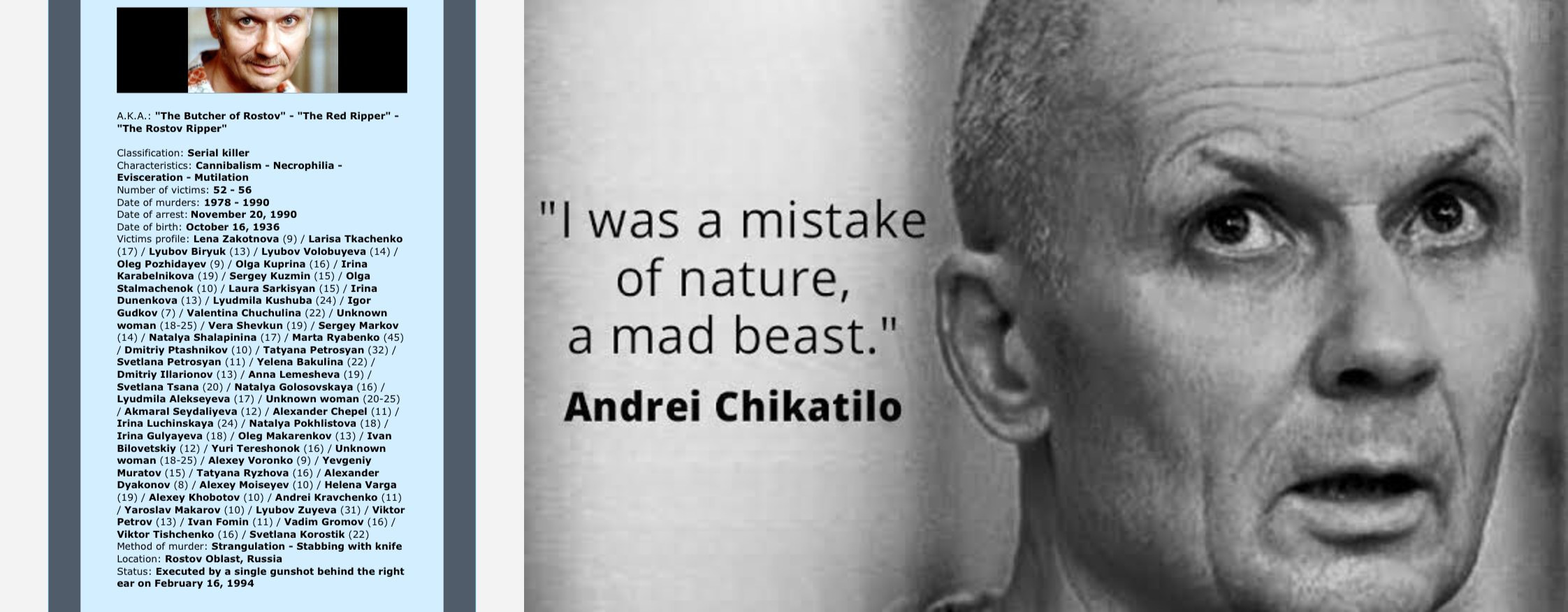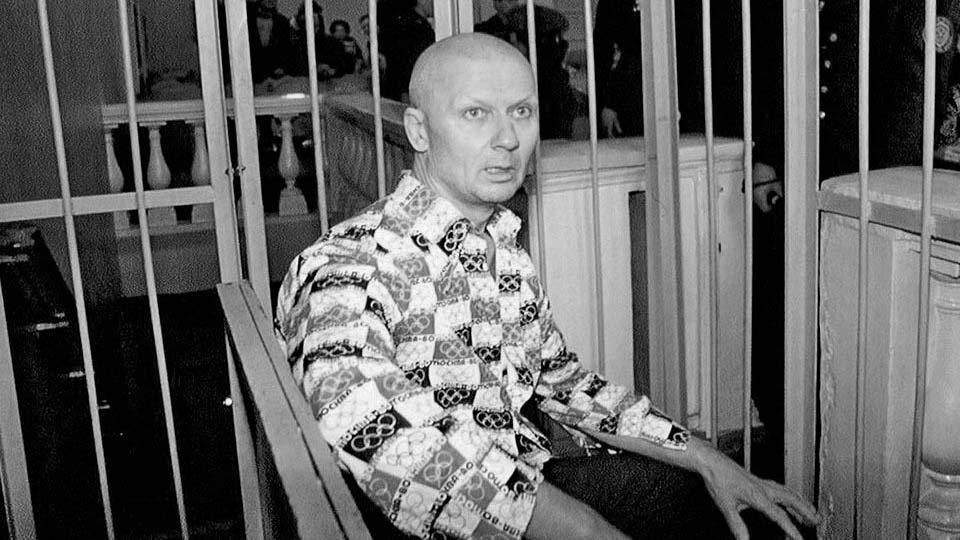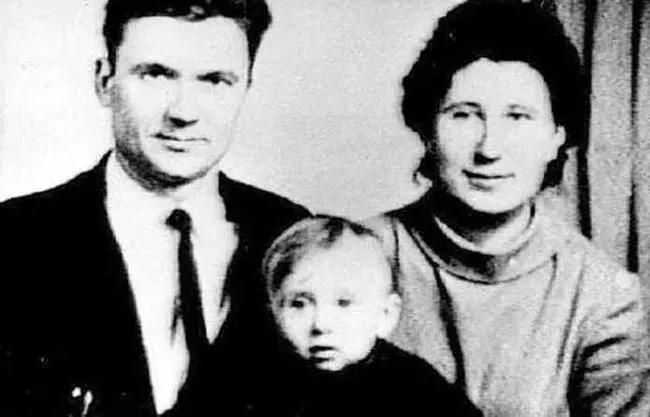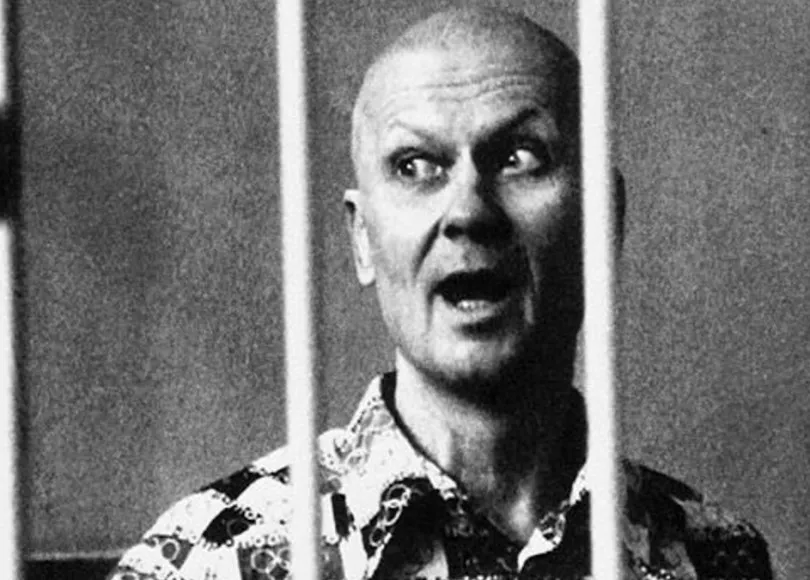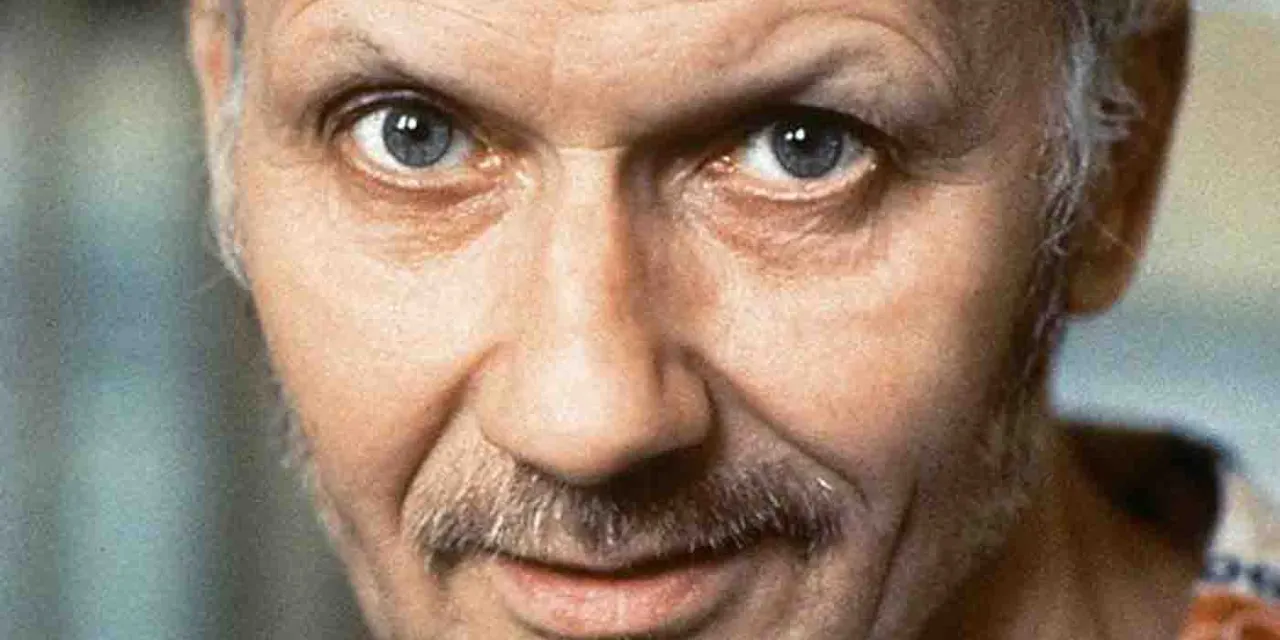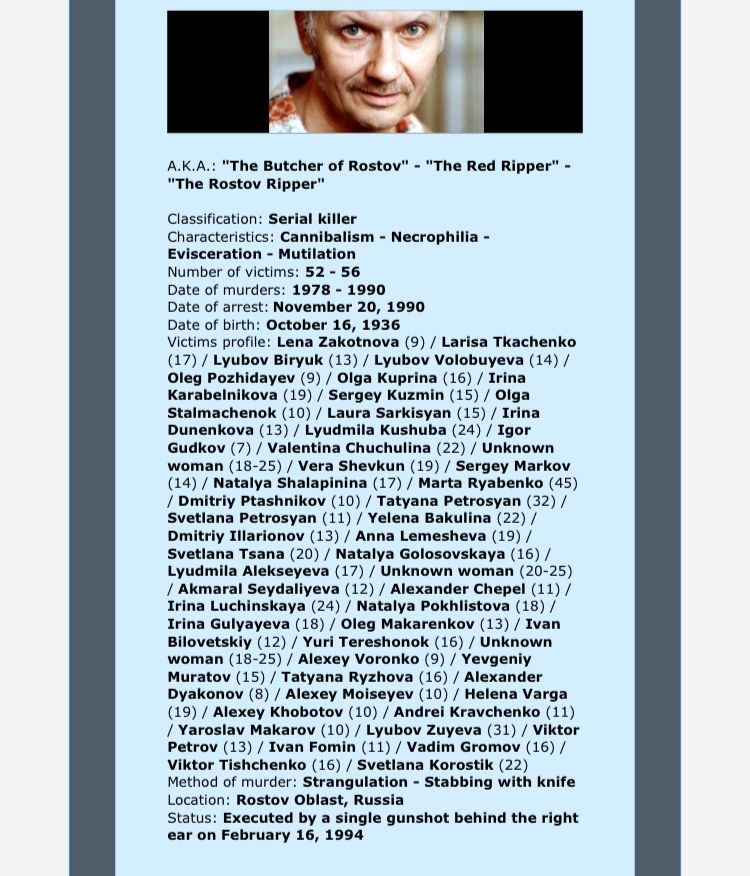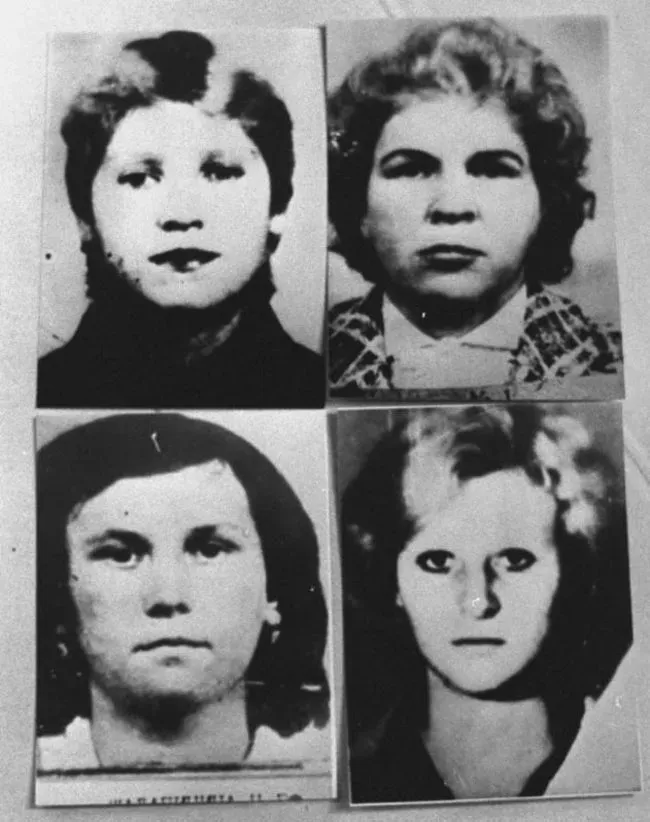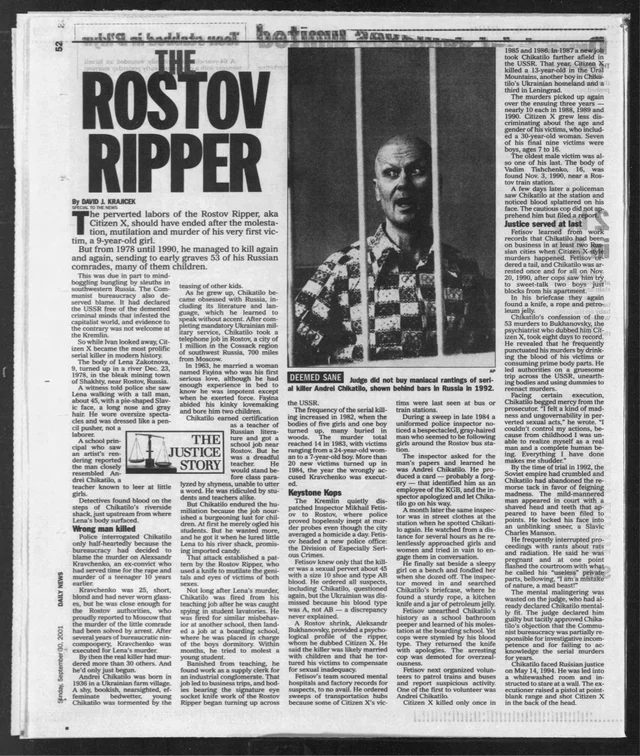Andrei Chikatilo’s name sends shivers down the spine. The serial killer, who was infamously known by several names like The Butcher of Rostov, The Rostov Ripper, and The Red Ripper, shocked the communist nation with his brutal acts.
Also known as Jack the Ripper, Andrei confessed to sexually assaulting, murdering, and mutilating at least fifty-two women and children between 1978 and 1990 in the Russian SFSR, the Ukrainian SSR, and the Uzbek SSR.
Known for eating pieces of his victims, entering knives in their bodies, ejaculating on them and taking out their eyeballs, this brutal serial killer turned into a cannibal from being a brilliant student.
Who was Andrei Chikatilo?
Andrei Chikatilo was born in the village of Yabluchne in the Sumy Oblast of the Ukrainian SSR. At the time of his birth, Ukraine was in the grip of a famine caused by Joseph Stalin’s forced collectivization of agriculture.
Chikatilo’s parents were both collective farm labourers who lived in a one-room hut. They received no wages for their work but instead received the right to cultivate a plot of land behind the family hut.
The family seldom had sufficient food; Chikatilo himself later claimed not to have eaten bread until the age of 12, adding that he and his family often had to eat grass and leaves in an effort to stave off hunger.
Throughout his childhood, Chikatilo was repeatedly told by his mother Anna that prior to his birth, an older brother of his named Stepan had, at the age of four, been kidnapped and cannibalized by starving neighbours, although it has never been established whether this incident actually occurred, or if a Stepan Chikatilo even existed. Nonetheless, Chikatilo recalled his childhood as being blighted by poverty, ridicule, hunger, and war.
The Horrors of the Second World War…
When the Soviet Union entered the Second World War, Chikatilo’s father Roman was conscripted into the Red Army. He was taken as a prisoner after being wounded in combat. Between 1941 and 1944, Chikatilo witnessed some of the effects of the Nazi occupation of Ukraine, which he described as “horrors”, adding he witnessed bombings, fires, and shootings from which he and his mother would hide in cellars and ditches.
On one occasion, Chikatilo and his mother were forced to watch their own hut burn to the ground. With his father at war, Chikatilo and his mother shared a single bed. He was a chronic bed wetter, and his mother berated and beat him for each offence.
When Chikatilo’s sister was born in 1943, it came out that his mother was raped by a German soldier in the one-room hut as Chikatilo’s father was conscripted in 1941. Chikatilo began his schooling a year after her sister’s birth. He was a shy and studious kid but was physically weak. On many occasions, his stomach remained swollen from hunger resulting from the post-war famine which plagued much of the Soviet Union.
Chikatilo was bullied by fellow students, who regularly mocked him over his physical stature and timid nature. At home, Chikatilo and his sister were constantly berated by their mother. Tatyana later recalled that despite the hardships endured by her parents, their father was a kind man, whereas their mother was harsh and unforgiving toward her children.
Chikatilo developed a passion for reading and memorizing data, and often studied at home, both to increase his sense of self-worth and to compensate for his myopia which often prevented him from reading on the classroom blackboard. To his teachers, Chikatilo was an excellent student upon whom they would regularly bestow praise and commendation.
The Red Ripper as an Editor
During his teen days, Andrei was an ardent communist. He was appointed editor of his school newspaper at age 14 and chairman of the pupils’ Communist Party committee two years later. An avid reader of communist literature, he was given the task of organizing street marches.
Chikatilo became the only student from his collective farm to complete his final year of study with excellent grades in 1954 despite his shortcomings. At the onset of puberty, Chikatilo discovered that he suffered from chronic impotence, worsening his social awkwardness and self-hatred.
Usually shy towards women, he once jumped upon an 11-year-old friend of his younger sister and wrestled her to the ground, ejaculating as the girl struggled in his grasp. Following his graduation, Chikatilo applied for a scholarship at Moscow State University.
Even though he passed the entrance exam, he did not get through. He felt that his scholarship was rejected due to his father’s tainted war record. He worked as a labourer in Kursk, enrolling in a vocational school to become a communications technician.
Red Ripper Gets into The Soviet Army
While living in Nizhny Tagil, Andrie undertook correspondence courses in engineering with the Moscow Electrotechnical Institute of Communication. He worked in the Urals for two years until he was drafted into the Soviet Army in 1957.
Chikatilo performed his compulsory military service between 1957 and 1960, assigned first to serve with border guards in Central Asia, then to a KGB communications unit in East Berlin. Here, his work record was unblemished, and he joined the Communist Party shortly before his military service ended in 1960.
Chikatilo’s Impotency
Upon completing his service, Chikatilo returned to his native village to live with his parents. He soon became acquainted with a young divorcée but the relationship ended because of several unsuccessful attempts of intercourse. He once revealed in an interview that girls would go behind his back and mock him for being impotent.
Chikatilo found a job as a communications engineer in a town north of Rostov-on-Don. He relocated to the Russian SFSR in 1961, renting a small apartment close to his workplace. In1962, he married a woman named Feodosia Odnacheva, to whom he had been introduced by his younger sister.
Chikatilo later claimed that his marital sex life was minimal and that, after his wife understood he was unable to maintain an erection, they agreed she would conceive by him ejaculating externally and pushing his semen inside her vagina with his fingers. In 1965, Feodosia gave birth to a daughter, Lyudmila. Four years later, in 1969, a son named Yuri was born.
Chikatilo began his career as a teacher of Russian language and literature in Novoshakhtinsk. That’s where everything changed. Chikatilo was largely ineffective as a teacher; although knowledgeable in the subjects he taught, he was regularly subjected to mockery by his students who, he claimed, took advantage of his modest nature.
From Andrei to The Rostov Ripper…
In 1973, Andrei committed his first sexual assault. He swam towards a 15-year-old girl and groped her breasts and genitals, ejaculating as the girl struggled against his grasp. Months later, Chikatilo sexually assaulted and beat another teenage girl whom he had locked in his classroom. No one initially took any action at the school where Chikatilo was teaching.
However, in response to an increasing number of complaints, the director summoned him to a formal meeting and informed him he should either resign voluntarily or be fired. Chikatilo left his employment discreetly and found another job as a teacher at another school in Novoshakhtinsk in January 1974.
Chikatilo’s career as a teacher ended in March 1981 following several complaints of child molestation against pupils of both sexes. The same month, he began a job as a supply clerk for a factory based in Rostov which produced construction materials.
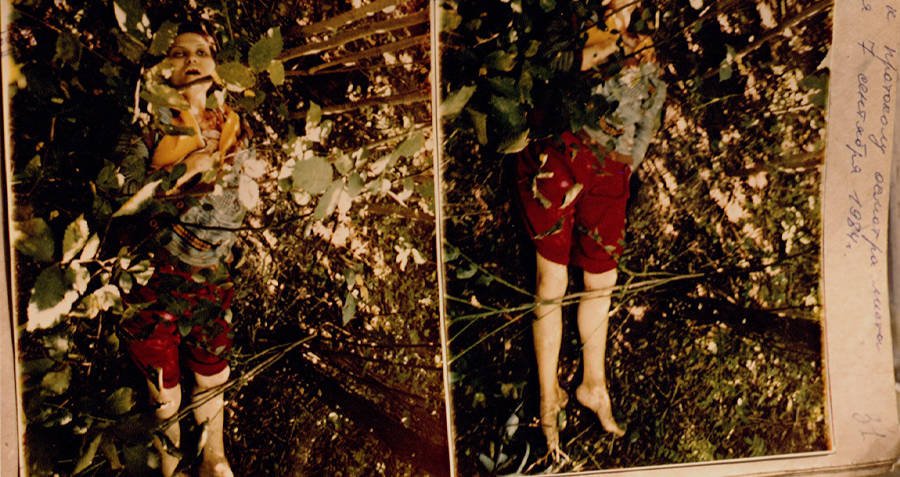
In September 1978, Chikatilo moved to Shakhty, where he committed his first documented murder. On the evening of 22 December, he lured a 9-year-old girl named Yelena Zakotnova to an old house which he had secretly purchased; he attempted to rape her but failed to achieve an erection. When the girl struggled, he choked her and stabbed her three times in the abdomen, ejaculating while stabbing the child. He then threw her body in a river.
Nevertheless, Chikatilo was able to evade detection for many years, in part because his crimes exploited weaknesses in the decaying society of the Soviet Union. Poverty made young people eager to leave their homes for the city, but, since they often had no friends or contacts there and little money, they could easily be lured into dangerous situations, and their disappearances would often go unnoticed.
In 1984, Chikatilo was arrested by a police officer who witnessed him molesting a girl at a train station. Although the briefcase he was carrying was found to contain a long knife and other suspicious instruments, police misidentified his blood type, which their tests showed did not match the type indicated by semen found at one of the crime scenes. Chikatilo was subsequently charged with theft of materials from a former employer and sentenced to one year in prison, though he was released after three months.
Many of the victims’ bodies bore evidence of mutilation to the eye sockets. Pathologists concluded these injuries had been caused by a knife, leading investigators to the conclusion the killer had gouged out the eyes of his victim. He continued his gruesome killings until 1990 when he was formally arrested.
In November 1990, Chikatilo was stopped and questioned when coming out of the area in which his final victim, Svetlana Korostik, was found. On November 14, the day after the remains were discovered, he was formally arrested and interrogated.
He finally confessed to as many as 57 murders, of which the investigators had only attributed 36 to him. The case went to trial on April 14, 1992. Chikatilo had to be placed inside an iron cage when on the stand to protect him from the family members of his victims.
When the media first saw Chikatilo on the first day of his trial, he entered an iron cage specifically constructed in a corner of the courtroom to protect him from attack by the enraged and hysterical relatives of his victims.
In the opening weeks of Chikatilo’s trial, the Russian press regularly published exaggerated and often sensationalistic headlines about the murders, referring to Chikatilo being a “cannibal” or a “maniac” and to his physically resembling a shaven-skulled, demonic individual.
Each murder was discussed individually, and on several occasions, relatives present in the courtroom broke down in tears or fainted when details of their relatives’ murders were revealed. The details were so gruesome that they would put the strongest person in a state of shock.
The Bizzare Behaviour…
The Red Ripper’s behaviour during the proceedings was bizarre. For instance, he pulled down his pants in the courtroom and shouted that he was not a homosexual, he claimed to be pregnant and lactating at some points and alternated between boredom and anger.
Andrei denied being guilty of several murders to which he had already confessed while confessing to unknown ones. When the prosecutor was about to deliver the final argument, Chikatilo broke into song and had to be removed from the courtroom.
Red Rippers Gets Executed…
Andrei Chikatilo’s case is noteworthy not only because of the large number of his victims but because efforts by Soviet police to issue warnings to the public during their investigation were hampered by the country’s official ideology, which asserted that serial murder was impossible in a communist society.
When he was brought in and offered a moment to speak, he said nothing. Though the defense tried to claim he was insane, a group of court-appointed psychiatrists disagreed. On October 14, 1992, Chikatilo was found guilty of 52 murders; 21 males and 31 females.
On February 14, 1994, Andrei Chikatilo aka The Rostov Ripper was executed with a single shot to the head, his last words apparently being “Don’t blow my brains out! The Japanese want to buy them!” This was his end. What do you think about this story?

